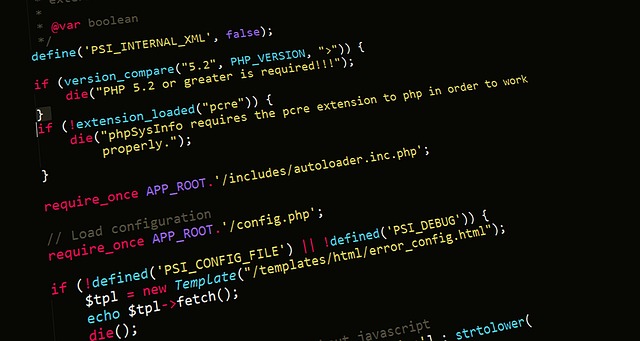Enterprise Resource Planning (ERP) is a method of managing the business’ internal processes. Its software combines different aspects of the business, such as financials, inventory management, manufacturing, human resources, sales, and others to help optimize the business’s activities. But how does an ERP system benefit a business, and what are the different specifications of ERP solutions?
These are thought-provoking questions that many businesses ask when considering implementing an ERP system. Companies see it as a way to reduce labor costs, increase efficiency, simplify operations, and integrate different departments. However, there is often confusion as to which features are included in ERP solutions, and what kind of implementation is necessary for a successful ERP project.
In this article, you will learn about the different types of ERP solutions, as well as the different specifications of them. You will be provided with an overview of the features and benefits of each ERP system, and the impact they could have on your business. Additionally, you will gain insight into the implementation process for an ERP solution, and the challenges that accompany it.
At the end of the article you will be left with a better understanding of what ERP solutions are, and how they can be used to optimize your business operations. You will also have a clear picture of the process needed to properly implement an ERP solution, and the challenges you may face along the way.
Definitions of ERP solutions and specifications
ERP, or Enterprise Resource Planning, is a suite of integrated, business software applications. It helps organizations to efficiently manage their resources and operations more effectively.
ERP Solutions are specialized software packages designed to help the business in various functional areas such as accounting, finance, inventory, procurement, sales, and customer relationship management.
ERP Specifications are the technical and functional specifications of the ERP software. These specifications outline the features and capabilities of the system, including the hardware and software requirements, the financials module, the database structure, the modules for each functional area, and the security protocols.
ERP solutions can be tailored to meet the specific requirements of an organization, and ERP software packages are generally modular in nature, meaning that they can be customized to fit the individual needs of the organization. The features and capabilities of the ERP system can be further enhanced by integrating with existing legacy systems or customizing modules for specialized functions.
ERP solutions can provide a variety of advantages, including cost savings, improved efficiency, greater visibility into operations, and increased customer satisfaction. Also, ERP solutions offer better processes, improved reporting capabilities, and a cohesive platform for business processes.
ERP solutions and specifications are essential components for businesses, and understanding the key elements of the system can help organizations make informed decisions when selecting a solution for their specific needs.
Introduction to ERP Solutions
Introduction to ERP Solutions
Enterprise Resource Planning (ERP) Solutions are systems used to effectively manage business-wide processes. They integrate activities such as sales and marketing, accounts and finance, supply chain and logistics, production, etc. on a single platform. This enables organizations to have better control of vital data which can be used for monitoring and evaluating operational performance.
Benefits of ERP Solutions
ERP solutions provide organizations with multiple benefits. Not only do they promote transparency, collaboration, and communication; they also help boost efficiency and productivity. Furthermore, they make it possible for organizations to analyze and access data quickly and effectively, thus enabling better and more informed decision-making.
Features of ERP Solutions
ERP solutions typically include the following features:
- Business Analytics – helping to track progress and metrics analytics on daily operations
- Data Management – providing widespread access to data from different departments and sources for better decision making
- Vendor Portal – for better communication between vendors and customers
- Activity Monitor – to allow real-time monitoring of activities and their performance
- Integrated Accounting – providing a unified view of all accounting information
- Organization Chart – to enable companies to view employees’ positions and monitor their performance
ERP solutions can be customized to meet the specific needs and requirements of any organization. The right solution should be able to provide the best value for a company’s investment. ERP solutions are especially well-suited for medium to large-sized businesses that require an organized and efficient way to manage their operations.
Specifications of ERP Solutions
What is ERP?
ERP (Enterprise Resource Planning) is a software system designed to manage and integrate multiple departments and processes within an organization. ERP is essentially an extended platform that combines systems and processes from different areas of a company into one unified system to make an organization more effective. ERP systems are used by organizations of all sizes, from small businesses to large multinational corporations. It can streamline processes, increase efficiency, reduce costs and improve customer service.
How do ERP solutions Work?
ERP solutions provide organizations with software solutions to address their unique business processes. They cover areas such as finance, accounting, inventory management, human resources, and customer relationship management. ERP solutions enable organizations to manage their operations better and reduce costs, while generating additional revenue.
ERP solutions are designed to integrate seamlessly with various existing systems, such as accounting, sales, customer service and supply chain. This allows organizations to access and share data from different departments without having to re-enter data into the system from multiple sources. The data stored in the ERP system is also automatically updated, which ensures accuracy and consistency across the organization.
What are the Benefits of ERP Solutions?
ERP solutions provide a variety of benefits to businesses. By integrating disparate business functions, they reduce manual data entry and eliminate errors due to duplication. ERP systems also provide organizations with greater visibility into their operations and allow them to make better informed decisions. They also allow organizations to automate manual processes, leading to increased efficiency and improved productivity.
ERP solutions also enable organizations to better manage their finances, as they consolidate their books and streamline their accounting processes. This allows organizations to access information about their finances more easily and quickly, resulting in faster decision-making and better financial management. ERP solutions also enable organizations to track customer activity and revenue more effectively, allowing them to better manage customer relationships and improve customer retention.
Finally, ERP solutions provide organizations with access to robust reporting and analytics capabilities, which allow them to gain greater insight into their operations and performance. This helps them make better decisions about their business and improve their bottom line.
Benefits of ERP Solutions
What is ERP?
Enterprise Resource Planning (ERP) is a type of software that organizations use to manage their business operations, resources, and finances. ERP software provides businesses with an integrated view of their operations, allowing them to more efficiently coordinate data across departments such as finance, sales, human resources, procurement, operations, and inventory. ERP solutions store and organize data within a single system while providing easy and secure access to authorized users.
Benefits of ERP Solutions
The use of ERP solutions can help businesses improve their operations and efficiency. They can provide a comprehensive view of the organization’s financial and operational performance, creating a more unified system with consistent data. ERP solutions help automate many business processes, freeing up time and resources that can be used more efficiently on other areas of the business. They also enable businesses to access up-to-date information and analytics more easily, providing more insight into the performance of their operations.
Furthermore, ERP solutions can improve collaboration across departments, breaking down data siloes and streamlining communication and workflow. This can lead to greater efficiency, more accurate decision-making, and improved customer service. ERP solutions also enable businesses to ensure compliance with industry standards, offering robust features to track, monitor, and report on data critical to regulatory compliance.
Finally, many ERP solutions are highly customizable, allowing businesses to carefully tailor systems to their unique needs and processes. ERP solutions offer comprehensive scalability, allowing businesses to grow with their changing needs as operations expand or evolve. By leveraging the latest technologies such as cloud-based deployment and mobile access, ERP solutions can also provide greater flexibility and agility for businesses.
Overall, ERP solutions can offer many benefits for organizations of all sizes, allowing them to better manage their operations and resources. With the right ERP solution, businesses can gain an in-depth view of their financial and organizational performance, ultimately driving greater efficiency and profitability.
Conclusion
Though-provoking question: With the fast-paced advances modern businesses face, how can implementations of ERP solutions remain reliable and consistent?
ERP solutions have allowed companies to enhance their operations, increase productivity and save money by managing their core operations more efficiently. Every organization is unique, and having an efficient enterprise resource planning software is key to elevating operations. ERP solutions have been helpful for industries such as manufacturing, supply chain and finance, by providing them with real-time visibility into their operations. They enable organizations to streamline processes, optimize resources and reach their goals quickly and efficiently.
Continue to follow our blog to stay up to date on the latest releases in ERP solutions. We will provide valuable information about the capabilities and features of these solutions, as well as tips on which one might best fit your business needs.
To further provide important information to our readers, here are a few frequently asked questions about ERP solutions and their specifications: What type of customization options are available for businesses? Customization option can vary depending on the ERP system, but features such as modules, reporting capabilities, scalability, customization, and user accounts are typically offered. What kind of support and training is available for businesses? Businesses will find support and training both during and after implementation of the ERP system. Online and offline resources are available for companies to increase their knowledge and performance of the system. What data security protocols are part of ERP solutions? ERP solutions come with a variety of data security measures, including encryption, data access control, and multi-level authentication. What are the costs associated with ERP solutions? The costs could include subscription fees, implementation fees, hardware and software applications, and training and maintenance. What role do outside vendors play in ERP solutions? Third-party vendors can assist your business with customizing the ERP system according to your needs and help you with onboarding and integrating your existing systems with the new ERP solution. This could involve the vendors setting up the system and offering training emails and tutorials.



